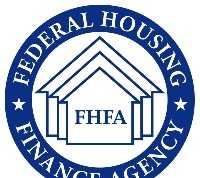America’s Hardest-Hit Foreclosure Spots
What could be worse than getting behind on mortgage payments? Owing your lender more than your home is worth.
That’s what’s happening to homeowners across the country, many of whom just a couple of years ago opted for interest-only or adjustable-rate mortgages. For them, just as their loans reset and interest rates rose, home values began to plummet, leaving them with negative equity; this is where their mortgage is greater than the value of their home.
Of course, some homeowners started off walking a shakier tightrope than others. Many subprime borrowers acquired piggyback mortgages, where a second mortgage covered the downpayment, leaving them with negative equity from the beginning. Indeed, 79% more U.S. homes entered foreclosure last year than in 2006, according to data from RealtyTrac, an Irvine, Calif.-based real estate research firm. Congress’s Joint Economic Committee estimates that 2 million Americans will lose their home over the next two years, a figure in line with most research firms and rating agencies.
Who is most feeling the crunch? Using data from RealtyTrac, which tracks foreclosures using data from multiple listing services, bank-owned property records, bankruptcy records, loan histories, tax liens and lender information, we evaluated which of the nation’s counties had the most negative equity loans, by examining all loans currently in foreclosure.
The usual suspects top the list. Wayne County, Mich., home to Detroit, is first, with 10,622 homes in foreclosure with negative equity, 176 of which have more than $100,000 of negative equity. Clark County, Nev., where you’ll find Las Vegas, has 4,278 homes in foreclosure with negative equity and lands at No. 2.
Rounding out the top five are Maricopa County in Arizona, and Riverside and Los Angeles counties in California.
Of course, not all foreclosures in a given area fit the same profile. In Wayne County, for example, almost 40% of all current foreclosures are on properties with negative equity. By contrast, of foreclosures in Miami-Dade, another area hard hit by the subprime crisis, only 11.6% have negative equity.
What does that mean? If an area has a high rate of foreclosures with positive equity, there are two likely explanations. Either it’s an area where resetting adjustable-rate mortgages are pushing homeowners into delinquency, or the current appraised value of the home (which is the basis for calculating positive equity) is higher than the home’s current market value. For an area such as Miami, where both are true, it’s a sign that more foreclosures are looming as ARMs reset and appraised values drop to the level of current market values.
“The market in Detroit has been softer for much longer so there’s more potential for price declines,” says Kermit Baker, an economist at the Harvard University Joint Center for Housing Studies. “Miami is just starting to get to that point, but the writing is on the wall.”
Who is to blame for the subprime crisis? Weigh in. Add your thoughts in the Reader Comments section below.
Another problem is the sometimes illusory nature of positive equity. Consider that often the appraised value upon which the positive equity is based does not take in to account the cost of selling the home; this often includes a broker’s fee as well as legal fees and other selling costs. A homeowner with low positive equity may see it erased upon the sale of his house.
Should You Short-Sell?
As prices continue to fall in many markets across the country, some owners are considering a short sale. This is when a borrower negotiates with his lender to sell his home at a loss, taking a bet that home prices will further depreciate and that a short sale will bring in more cash for the lender than would a foreclosure and auction.
“If the equity in the house is sufficiently negative, there may be an incentive for the household to engage in a short sale,” says Anthony Sander, a finance professor at Arizona State University. “But the more negative the equity, the less likely the lender or servicer will be willing to agree since it increases the loss.”
The environment for short-sellers is better, thanks to the Mortgage Forgiveness Debt Relief Act, passed last month, and enacted on Jan. 1, 2008. It eliminates the tax liability for short-sellers. Before this bill, if you sold a $250,000 home for $200,000, the IRS considered the $50,000 gap earned income and taxed it as such. Not so today.
That’s good news for underwater mortgage holders in expensive markets, who are more likely to see larger spreads. Los Angeles County, Calif., Kings County N.Y., and Riverside County, Calif., have the highest instances of homeowners, with more than $100,000 in negative equity.
Still, those considering a short sell need to do their homework before taking the plunge.
First, understand the gamble. A short sale will serve as a black spot on your credit history. While urgency is important, understand that there will likely be another home buy in your future, and it’ll be more difficult to acquire a loan if you have a history of skipping out early and leaving the lender with the bill.
Then judge the market. Do serious research into your market at the neighborhood level. If the homes all around you are headed to foreclosure and prices are falling like a stone, lenders will be eager to cut their losses and agree to a short sale. If this is the case, speed means everything. If your equity falls too far below zero, lenders are less likely to agree to a short sale because it costs them more.
Source: FORBES.com

















